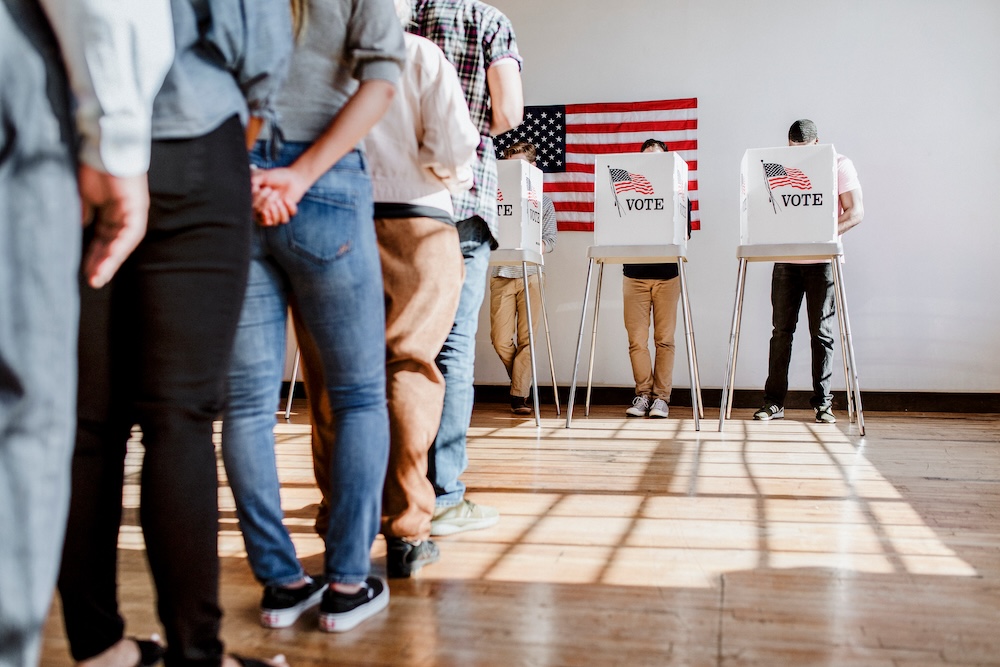by Danielle Smith, Keystone State News Connection
Pennsylvania is one of only seven states that shuts out independent voters from voting in primary elections.
Two bills proposing to open the Keystone State’s primary elections to roughly 1.2 million independent voters await a Senate vote.
David Thornburgh chairs Ballot PA – a project of the Committee of Seventy.
He said approval of the two bipartisan bills would be a historic step toward opening Pennsylvania’s primaries to independent voters, but further action is required for them to participate in the upcoming 2024 presidential election.
“We really feel like momentum is with us,” said Thornburgh. “And, again, this is not a revolutionary change. There are 43 other states that have figured out a way to do this. And, we don’t want to be the last one to include these voters because, to my mind, this is a civil rights issue.”
More than 8.7 million Pennsylvanians are registered to vote.
Backers of keeping primaries closed say the political parties have the right to allow only their members to participate. But opponents say they produce candidates that are more loyal to their parties than their constituents.
Thornburgh said a very high percentage – 70% to 90% of all elections – are basically decided in the primaries, partly because most districts are heavily Democratic or Republican.
And the winners often have no opposition candidate in the fall.
He added that it’s critical for non-affiliated voters to get the opportunity to vote in the primaries.
“They have a high concentration of veterans,” said Thornburgh. “One in two veterans consider themselves independent. So, the idea that we would cut out veterans from voting in elections is just unthinkable. And the other thing is young people. About two-thirds of young people, 18- to 24-year-olds, consider themselves independents.”
As it stands now, independent voters in Pennsylvania can only cast primary ballots for state constitutional amendments, local initiatives, or referendums.
Senate Bill 400 has co-sponsors from both major parties but still faces votes in both chambers of the General Assembly.
por Danielle Smith, Keystone State News Connection
Pensilvania es uno de los siete estados que impide a los votantes independientes votar en las elecciones primaries.
Dos proyectos de ley que proponen abrir las elecciones primarias del estado de Keystone a aproximadamente 1.2 millones de votantes independientes esperan el voto del Senado.
David Thornburgh preside Ballot PA, un proyecto del Comite de los Setenta.
Dice que la aprobacion de los dos proyectos de ley bipartidistas serian un paso historico hacia la apertura de las primarias de Pensilvania a los votantes independientes, pero se requieren medidas adicionales para que puedan participar en las proximas elecciones presidenciales de 2024.
“Realmente sentimos que el impulso esta con nosotros,” dice Thornburgh. “Y de nuevo, no se trata de un cambio revolucionario. Hay otros 43 estados que han encontrado la manera de hacerlo. Y no queremos ser el ultimo en incluir a estos votantes, porque en mi opinion, se trata de una cuestion de derechos civiles.”
Mas de 8.7 millones de habitantes de Pensilvania estan registrados para votar.
Los partidarios de mantener las primarias cerradas dicen que los partidos politicos tienen derecho a permitir que solo participen sus miembros. Pero quienes se oponen dicen que producen candidatos mas leales a sus partidos que a sus electors.
Thornburgh afirma que un porcentaje muy elevado, entre el 70% y el 90% de todas las elecciones, se deciden basicamente en las primarias, en parte porque la mayoria de los distritos son fuertemente democratas o republicanos.
Y los ganadores no suelen tener candidato de oposicion en otono.
Anade que es fundamental que los votantes no afiliados tengan la oportunidad de votar en las primarias.
“Tienen una alta concentracion de veteranos,” agrega Thornburgh. “Uno de cada dos veteranos se considera independiente. Asi que la idea de que excluyamos a los veteranos del voto en las elecciones es impensable. Y la otra son los jovenes. Alrededor de dos tercios de los jovenes, entre 18 y 24 anos, se consideran independientes.”
En la actualidad, los votantes independientes de Pensilvania solo pueden votar en las primarias sobre enmiendas constitucionales estatales, iniciativas locales o referendos.
El proyecto de ley 400 del Senado tiene copatrocinadores de los dos principales partidos, pero aun debe ser votado en ambas camaras de la Asamblea General.




